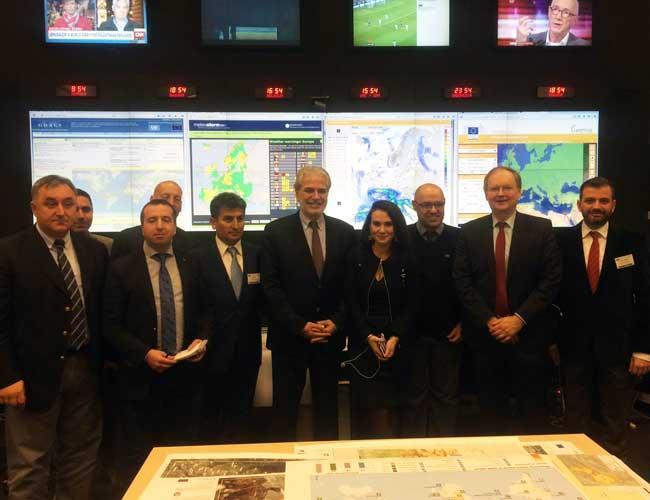EU vows allocation of 3 billion euros to Syrian refugees in Turkey to be completed ‘before 2018’
Serkan Demirtaş - BRUSSELS

The European Commission is committed to completing the contracting of all three billion euros in assistance to Syrian refugees in Turkey before the end of this year, senior EU officials have vowed, adding that the process for the allocation of the additional three billion euros will start in early 2018.
“We are working hard to complete the contracting of the first three billion euros by the end of this year. And definitely we will fulfil our commitments in order to see all projects concluded as soon as possible,” Christos Stylianides, the EU commissioner responsible for Humanitarian Aid and Crisis Management, told Turkish journalists in Brussels.
“Our member states have already agreed to mobilize an additional 3 billion euros, shortly after the currently available resources have been contracted,” Stylianides said, voicing his expectation that the allocation of the next financial assistance will begin in May or June 2018.
The EU provides financial assistance to around three million Syrians currently in Turkey in return for stopping the flow of migrants from Turkish territories to the Greek islands as part of a deal brokered last year in March. The deal stipulates Brussels to deliver 6 billion euros in two equal payments, but Ankara has criticized the EU for not being sufficiently rapid in transferring the money.
Officials noted that around 900 million euros have been dispatched to Turkey and the contracting process of the remaining allocation have nearly been completed.
EU Ambassador to Turkey Christian Berger, who was also present at the meeting with Stylianides, described in detail how the process is functioning.
“I have been working in the European Commission for 20 years and I can say that this [allocation of 900 million euros] is at the speed of light. I have not seen any other implementation so fast in less than one-and-a-half years,” Berger said.
“By the end of this year everything will be contracted. So the first 3 billion euros will have been contracted and then the discussion about the next 3 billion will begin,” he added.
‘Last contract on Dec 31, 2017’
Berger also touched on why all contracted money cannot be physically delivered at once, referring to the nature of the supported projects that aim to meet the various needs of Syrian refugees.
“The Commission is responsible for the Kızılay Card, in which every month every Syrian gets paid 120 liras. This will run for a long period of time, so the payments of that money would take at least two or three years until this all money is paid out,” he said.
“We’ve also just agreed to build 100 new schools in Turkey. These schools will be built and the contracts will be signed but the final payment for the schools will only be delivered when the schools are finally completed and operational,” he added.
Berger also stated that a contract worth 630 million euros for the Kızılay Card project will be signed in the coming days.
“So big junks will be coming in the next three or four weeks, before the end of the year. The last contract will be signed on Dec. 31. We will be working on this during Christmas,” he said.
‘Turkey, EU should be proud’
Stylianides, meanwhile, described ongoing cooperation between Turkey and the EU on Syrian refugees as “one of the biggest humanitarian projects in the world.”
“At the same time we are implementing our biggest European education program in Turkey: The conditional cash transfer for education. We have already reached more than 255,000 children inside Turkey through this,” he said.
“I strongly believe that Turkey and the EU together can be proud of this achievement. It is an excellent example of what we can do when we work together,” he added.
“The European Union, all of our European institutions - the European Commission, the European Council, the European Parliament - are really committed to the implementation of the EU-Turkish agreement. And this is an engagement of mutual trust and delivery. I think our joint work on the ground has already delivered strong progress,” Stylianides said.
















